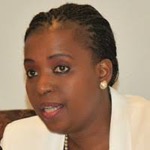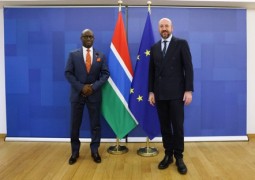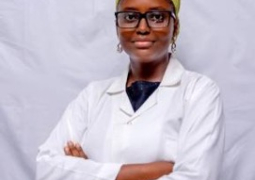
The validation of the PRC Bill, held at the Sir Dawda Kairaba Jawara International Conference Centre, was organised by the Ministry of Interior with support from UNDP.
After the final validation and endorsement of the draft Peace and Reconciliation Commission Bill, it will be put before the Parliament.
Besides, the objective of the PRC validation session was to provide a platform for the consultant to present key provisions in the draft PRC Bill and to provide stakeholders the opportunity to comment and validate the draft bill.
Mandisa Mashologu, Resident Representative of the United Nations Development Programme, acknowledged that the validation marked an important milestone in government’s resolve to break with its past human rights violations and reaffirm its commitment to justice and accountability.
She said the event also provided them another opportunity to bring together key stakeholders to reflect on what needs to be done to achieve a genuine and just peace and reconciliation for the country.
She stated that the Truth, Reconciliation and Reparations Commission (TRRC) relayed a strong call from the Gambian people for peace, reconciliation, healing and social cohesion based on the truth they told.
“Reconciliation is the only path to ‘NEVER AGAIN’. It restores trust, which is the glue for building relationships, for society,” she said. “There is no cohesion without trust! Reconciliation clarifies a united future rooted in a shared vision of how society should be structured to transform itself.”
She expressed optimism that the PR commission will meet these aspirations and play an important role in supporting victims and the Gambian society to move beyond the painful past into a united and peaceful future.
She recalled that over the years, the UNDP has learned how crucial it is for peace and reconciliation commissions to be established in a right manner “if a country is to recover and be placed firmly on the path to unity and sustainable peace”.
Abraham K. Mendy, deputy permanent secretary at the Ministry of Interior, said his ministry had contributed to the cause of peace and reconciliation in the country and safeguarded the new democratic dispensation that The Gambia now enjoys, led by President Adama Barrow and their efforts towards a successful transition and an effective security sector reform.
Muhammed S. Bah, a member of the Technical Working Group (TWG) for Infrastructure for Peace, who also doubles as the president of the Gambia Press Union (GPU), stated that the forum was meant to pave the way for a sustainable peace infrastructure that will serve as a cornerstone for long-term stability and reconciliation in the country.
He said that in their collective journey towards reconciliation and nation-building, they have recognised the need for a framework that “not only addresses past grievances, but also prevents future conflicts”.
“This is not just about responding to the past; it’s about preparing for a peaceful future, ensuring that the values of harmony, justice, and coexistence are embedded in our national fabric,” Mr Bah pointed out.
Read Other Articles In Headlines




